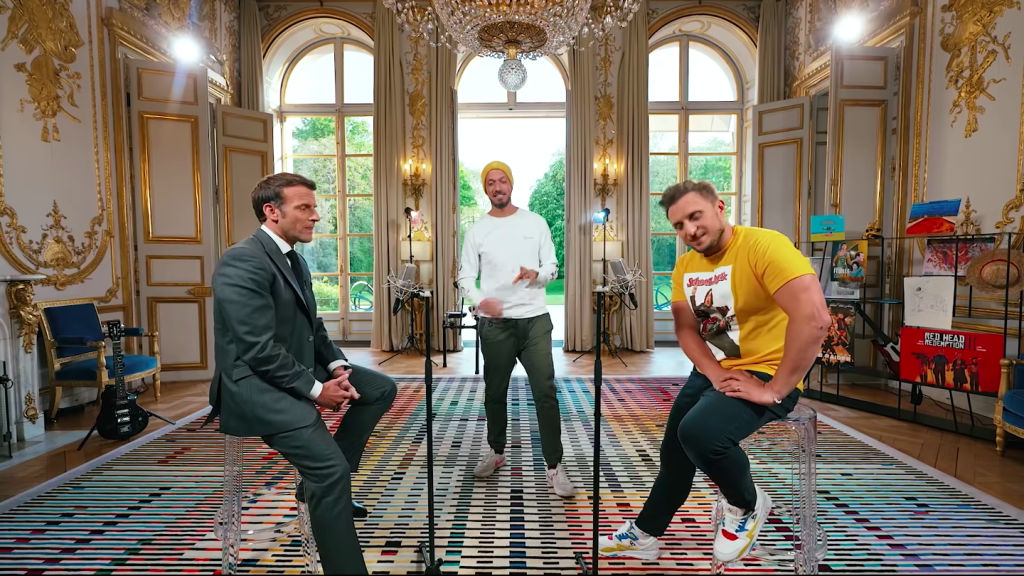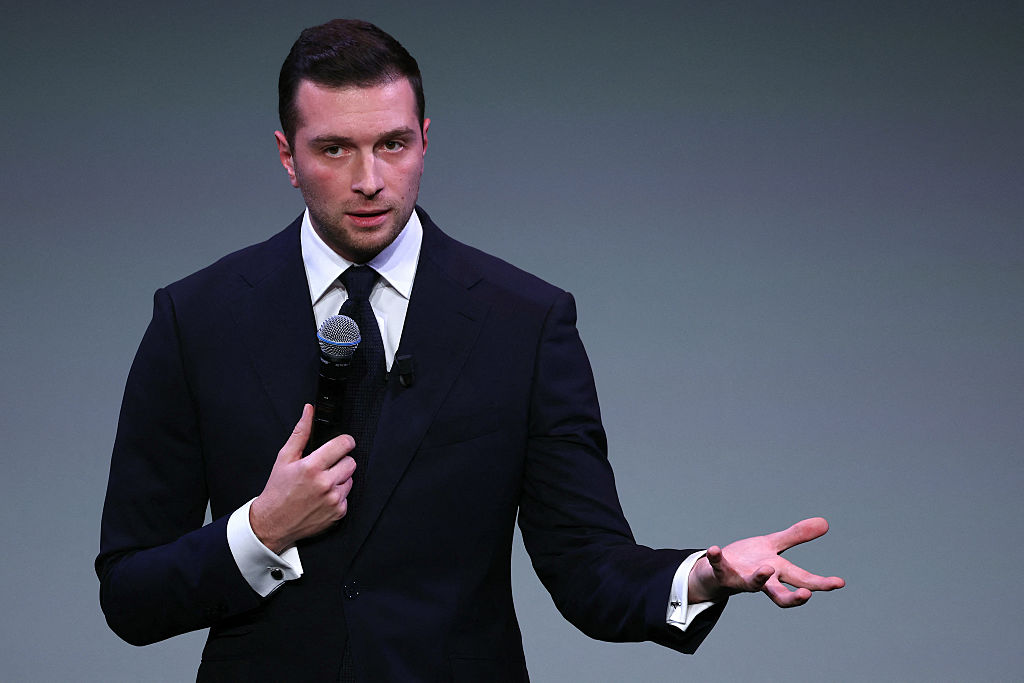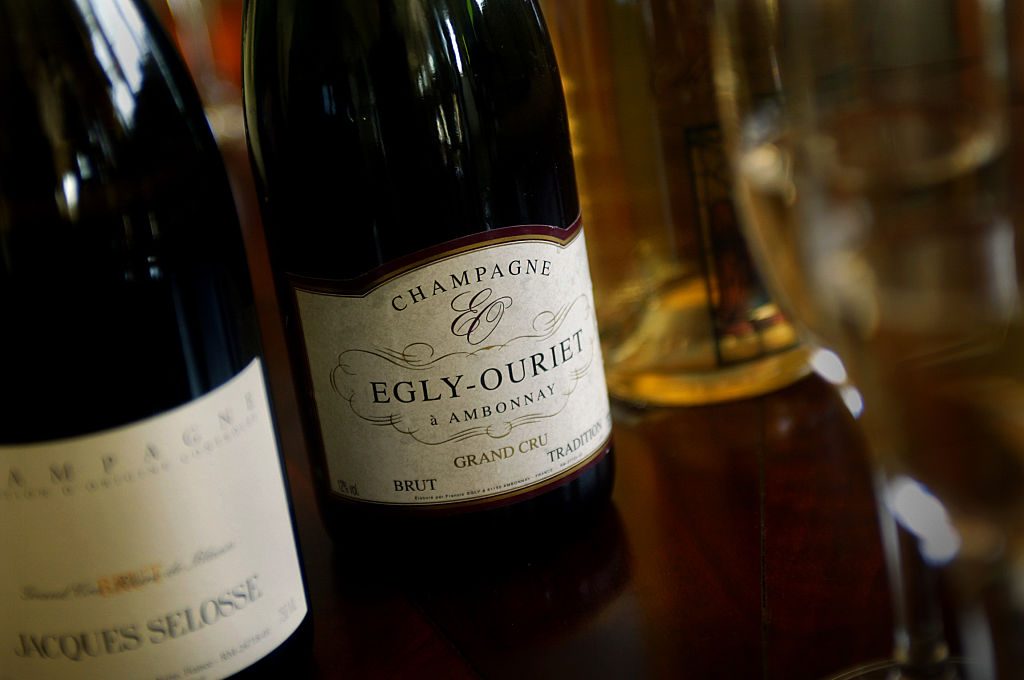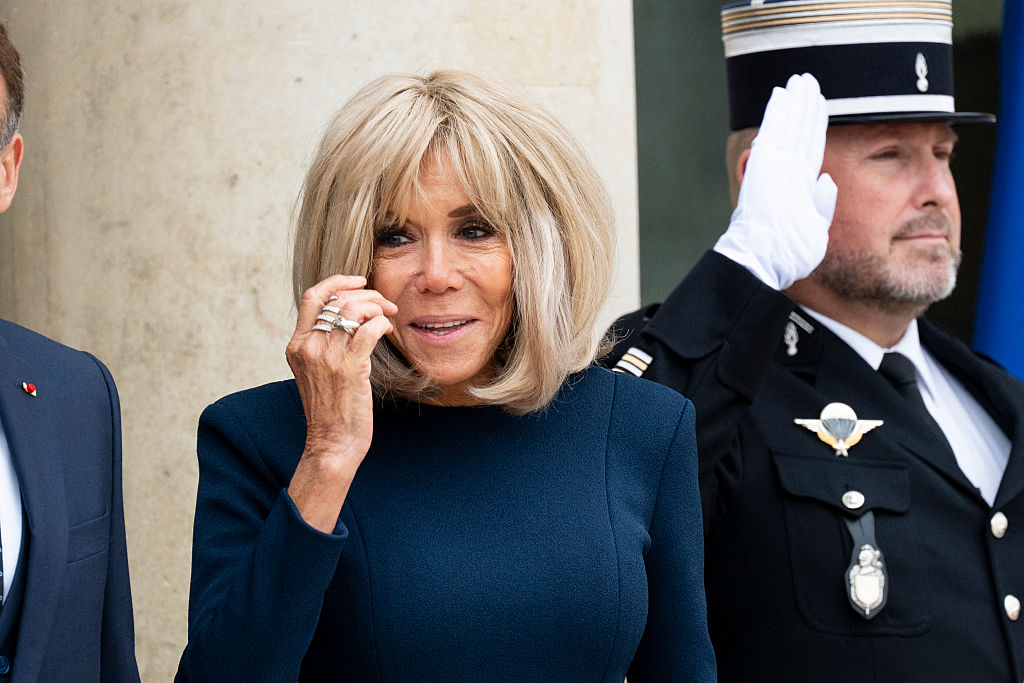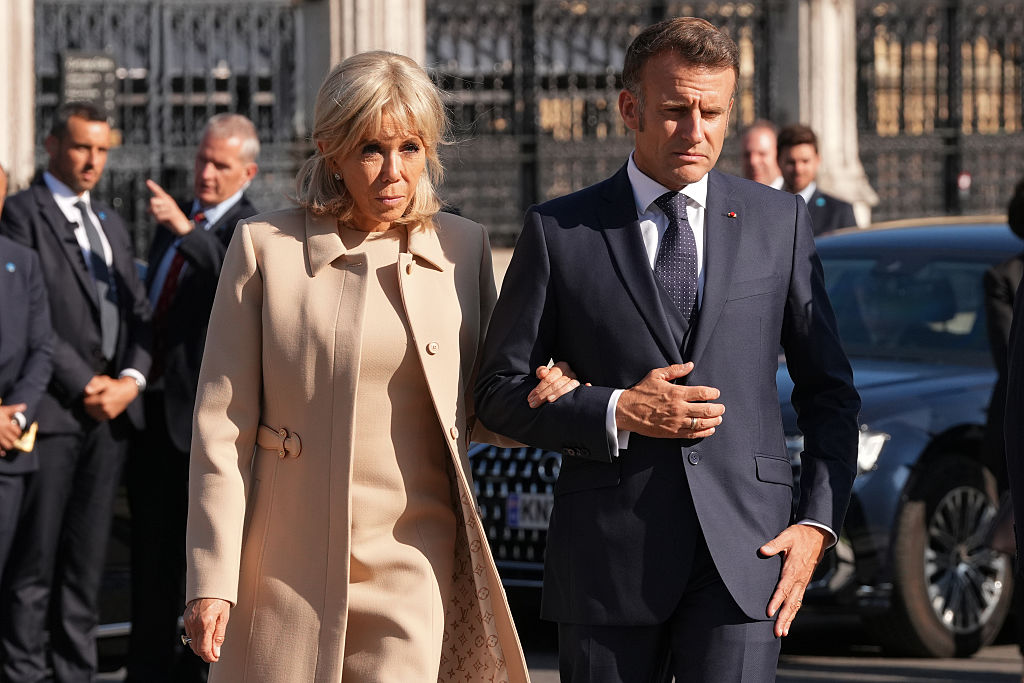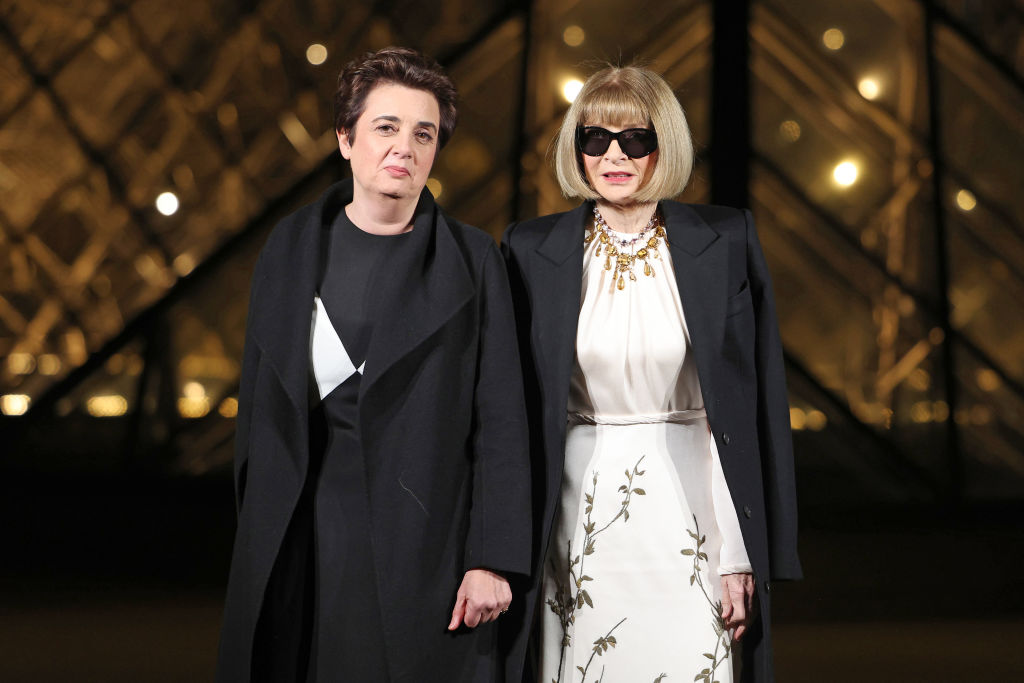In May 2017 Emmanuel Macron struck a regal pose as he strode across the esplanade of the Louvre to address his followers on the night of his presidential election triumph. In the weeks that followed he was likened to Jupiter, Louis XIV, and Napoleon Bonaparte, as Charles de Gaulle once was, the president who declared that a leader should reign with ‘cold dignity’.
Fast forward four years and President Macron has just welcomed to the Elysée two YouTubers called Carlito and McFly, both of whom dressed down for the occasion with one appearing to have a tea cozy on his head. The pair are all the rage among that section of society who get their kicks on YouTube, although despite their adolescent antics Carlito and McFly are actually a couple of middle-class men in their mid-thirties.
What followed was excruciating, what one conservative commentator described as ’36 minutes of soft barbarism… [which] erodes the verticality of power and deconstructs the state’. All of which begs the question: what was Macron thinking in inviting Carlito and McFly into his palace?
To win the youth vote, perhaps? A poll last month suggested that the 25- to 34-year-old demographic is more inclined to vote for Marine Le Pen in next year’s presidential election than for Macron. But they would not have been won over by what they saw, a president ill-at-ease in his suit and tie, a fixed grin on his face as he exchanged wooden banter with two lowbrow clowns.
Style, sophistication, and dignity matter to the French electorate (ask François Hollande, whose reputation never recovered after he was photographed in 2014 hitching a lift on the back of a scooter to an assignation with his lover) — and Macron forfeited them all in his YouTube appearance. What it will have done for his standing among the over 65s, who have proved his staunchest supporters, remains to be seen. Not much, one suspects.
Nor will they have been impressed by the puerile row that erupted at the weekend between Macron’s interior minister, Gérald Darmanin, and Audrey Pulvar, a Socialist candidate in next month’s regional elections. Darmanin said that he was filing a complaint against Pulvar on behalf of his ministry after comments she made in the wake of last week’s police rally in Paris, at which Darmanin was present. Describing the rally as ‘supported by the extreme right’, Pulvar said she found the sight of police officers marching to the National Assembly ‘to put pressure on the deputies examining a text of law concerning justice…quite chilling’.
In response, Pulvar filed a complaint of her own against Darmanin for ‘malicious accusation’, which prompted the interior minister to back down. He has proposed to meet Pulvar to discuss their differences, a suggestion that will be accepted only if Darmanin withdraws his complaint.
Some within the Socialist party believe that the brouhaha will work to the advantage of the left, who will rally around Pulvar in the face of the threats from Darmanin, a member of a government that only a few months ago was vigorously defending the right to free speech. Another possibility is that the undignified spat will push more of the undecided towards Marine Le Pen, who is busily campaigning ahead of the regional elections.
One of the several political leaflets handed to me at my local market on Sunday was from Le Pen’s National Rally. ‘Vote for the choice of security’ was the headline of the four-page leaflet. There was nothing about the economy, the environment, or Europe. Le Pen has little to say on these issues; she prefers to focus on fear.
According to the leaflet, there is an ‘aggression’ every 44 seconds in France, and most occur in the Ile de France region, home to 80 per cent of the country’s violent gangs. Le Pen’s party promise to beef up the police presence in what it calls the ‘no-go areas’. They also claim that in towns under their control ‘criminality has massively diminished’.
Some of the statistics associated with that claim are disputed but it’s hard to accuse the National Rally of scaremongering when the news is so unremittingly bleak: last week a homeless woman was filmed being raped on the streets of Paris while at the weekend there were multiple attacks on the police across the country, and in Bourgogne a gang of youths armed with iron bars savagely beat a village mayor. These are only the latest examples of France’s long descent into ultra-violence.
Le Pen’s message between now and the presidential election will change little from that of the regional elections: security, security, security. Macron, for his part, remains confident that if it’s once more a duel between him and Le Pen in the second round he will be returned to power. That’s what the polls predict. What the polls can’t forecast is how much more violence France will suffer in the intervening months. A lot, one fears.
There is a feeling among the French I speak to that the country is nearing a tipping point and that voters, alone in the booth, might decide that with no dignified politicians left, they might as well give Le Pen a go.
This article was originally published on The Spectator’s UK website.



